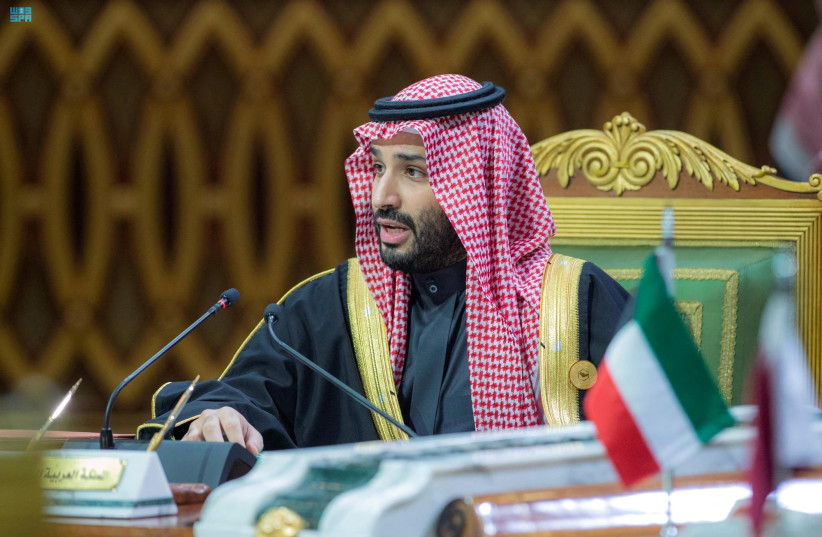This week’s visit of President Joe Biden to Israel, the Palestinian territories and Saudi Arabia might signal a reinvigorated American engagement in our region. As members of Commanders for Israel’s Security (CIS), a movement of well over 350 retired senior officials who have led the Israeli security agencies and worldwide diplomatic missions over past decades, we both welcome the visit of a great friend and venture the hope that it will mark another phase in US leadership on matters vital for Israel’s security.
Both in its first leg that addresses Israelis and Palestinians, and its second, where the president engages leaders from across the region, his message can rekindle hope of greater security for all.
In the region, Iran’s reckless conduct can best be checked by harnessing the resources, such as intelligence and the ability to operate in the air, on land and over waterways, of like-minded countries, from Saudi Arabia to Egypt and Jordan, and from the UAE and Oman to Israel. The visit’s message seems to indicate progress on at least some important dimensions on that front.
Saudi Arabia-Israel relations
In the context of the important and promising Abraham Accords, the administration’s efforts to expand the normalization circle have reportedly inched Israel and Saudi Arabia closer to testing the waters of bringing their cooperation into the open. Though the initial steps might be limited in scope, the direction is encouraging. No less encouraging is the Biden administration’s commitment to leverage the Abraham Accords in helping Israelis and Palestinians reach the promised land of peace, however tortuous the road there.
For the hundreds of CIS members – retired IDF generals and admirals, as well as the Mossad, Shin Bet and police equivalents, and leaders of our National Security Council and diplomatic corps – it is the Biden message on the Israeli-Palestinian issue that is most important.
Battle-tested and exposed to the most accurate assessments of Israel’s security challenges and responses, we know for a fact that Israel is more militarily powerful – and in some other respects – than the total sum of its security challenges. But we also know that the primary challenge to the Zionist vision, which has guided us in uniform and since, is the risk of a one state disaster, where Israelis and Palestinians are doomed to an ever conflicted future. This has no military solution.
AS ONE, we are convinced that separating Israelis and Palestinians, preferably in an eventually negotiated two state agreement, is vital for Israel’s future as a strong Jewish democracy. Indeed, we expect such an agreement to incorporate robust security arrangements that belie suggestions that what happened when we exited Gaza unilaterally, leaving a vacuum for Hamas terrorists, will be replicated in the West Bank in the wake of a negotiated deal. To be clear: it is our joint professional judgement that once implemented, the security arrangements associated with a two state agreement will enhance Israel’s security.
We are therefore alarmed by initiatives on both sides to shut the door on that option and by extremists’ resolve to ignite the region by provocative violations of the status quo on the Temple Mount, a site holy to billions the world over.
It is with that realization in mind that we have engaged our national leadership in extensive discussions, including by presenting them with concrete, security-based plans for separation between the two peoples even in the absence of and until negotiations produce an agreement. We urge Biden to send a powerful message during his visit that revitalizes and provides concrete expression to the all-important yet elusive political horizon of two states for two peoples.
Two-state solution
A manifestation of resolve to pursue a two state solution once conditions are ripe, to oppose unilateral steps by either side that add to the difficulty of getting there, and to encourage interim measures that separate the populations in a manner that not only reduces friction and violence but demonstrates a commitment to an eventual negotiated agreement, is bound to energize Israelis, Palestinians and relevant third parties, from the region and beyond, who share a commitment to these objectives.
We wish to assure Biden and let Israelis, Palestinians and all third parties know that the hundreds of CIS members, retired chiefs of Israel’s security agencies and diplomatic missions, will stand by those who take the lead in rekindling hope across the Israeli-Palestinian divide, stop the slide toward a one-state reality and reverse course enroute to an eventual two state agreement. As elsewhere in a world riddled by conflicts, when it comes to taking the lead in carving a better future, the US is indispensable.
Maj. Gen. (ret.) Matan Vilnai is chairperson of Commanders for Israel’s Security (CIS). He is a former IDF deputy chief of staff, past deputy defense minister, cabinet member under prime ministers Barak and Netanyahu, and Israel’s most recent ambassador to China.
Admiral (ret.) Ami Ayalon is a member of CIS. He is a former director of the Shin Bet and past commander of the Israel Navy.
Tamir Pardo is a member of CIS. He is a former Mossad director.
Nimrod Novik is a member of CIS. He is a former special ambassador and diplomatic adviser to late-prime minister Shimon Peres. He is the Israel Fellow at the Israel Policy Forum (IPF).

